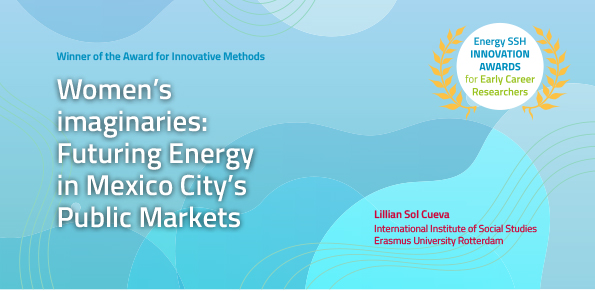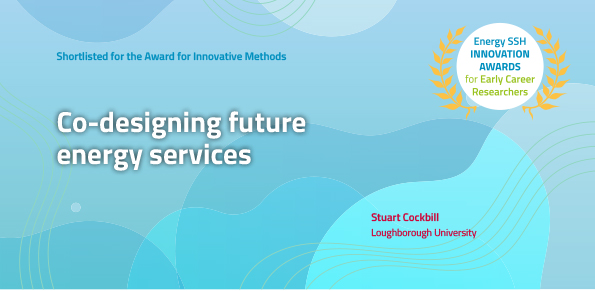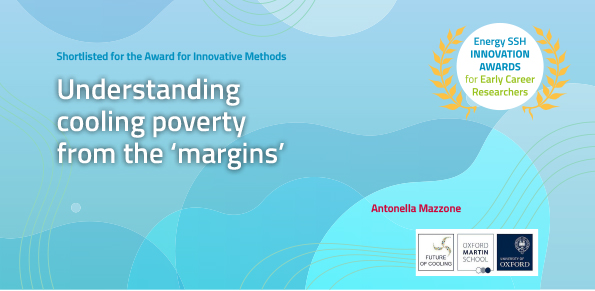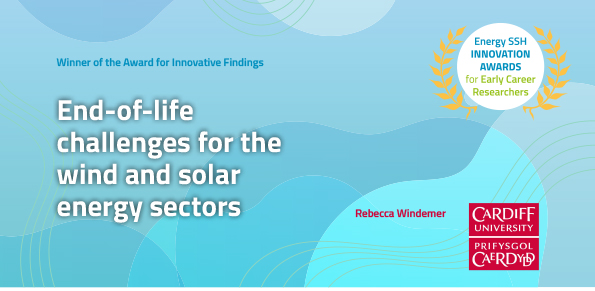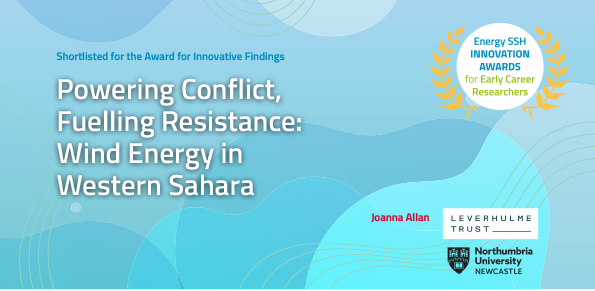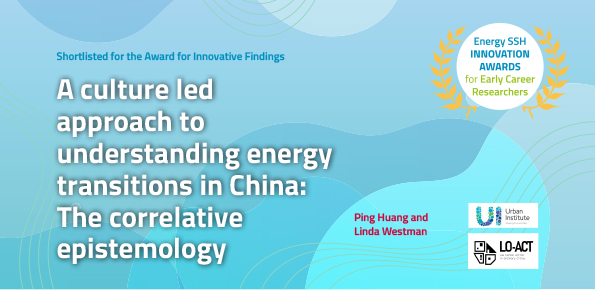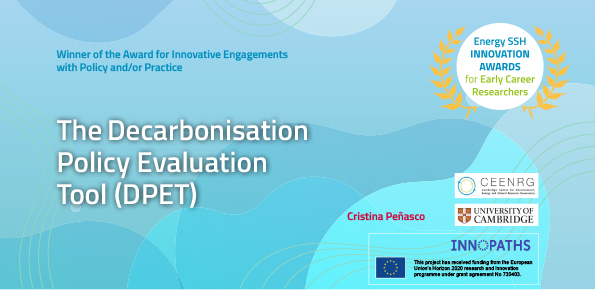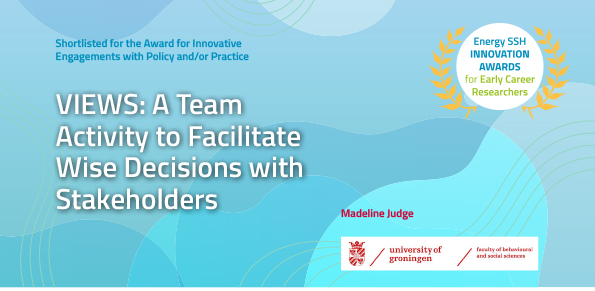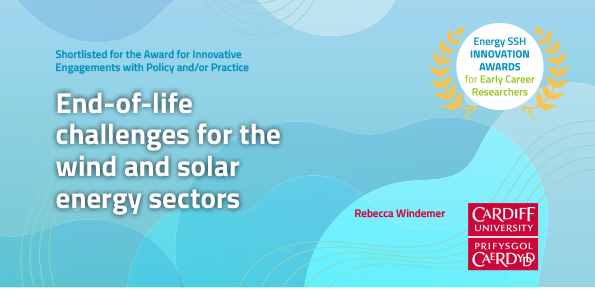
Presented by Energy-SHIFTS, in partnership with:
Royal Geographical Society with IBG’s Energy Geographies Research Group, and the European Sociological Association: Research Network 12 Environment and Society
The 2021 Energy SSH Innovation Awards showcase the work of Early Career Researchers (ECRs) in the Social Sciences and Humanities, in advancing energy research through exciting new methods, findings and engagements with policy and practice
In 2020 the Energy-SHIFTS project published four Horizon Scan Reports listing a total of 400 priority questions for energy SSH. We invited ECRs whose research addresses one or more of these priority questions to submit an application to the 2021 Energy SSH Innovation Awards.
Nine applicants were shortlisted, and received a professionally-designed research summary, based on their submission. Of these, three winners were selected, who each received a prize of £850 and worked with communications professionals to produce a short video about their research.
We are proud to showcase these exceptional researchers, and to present their inspiring videos and research summaries here.
Award for Innovative Methods
Winner
Lillian is currently a PhD researcher on energy futures from a feminist perspective. Over the past 10 years she has been working on topics such as women’s rights, climate change, energy and sustainable mobility. Lillian’s work addresses Priority Questions in the Horizon Scan report on Renewables.
Shortlisted researchers:
Stuart is a Lecturer in Design at the School of Design and Creative Arts, Loughborough University. He has a background in Product Design, Inclusive Design, and a Ph.D. that applied creative design research methods in the energy context. Stuart’s work addresses Priority Questions in the Horizon Scan report on Energy Efficiency.
Antonella is a Social Scientist with background in Humanities (Literature and Philosophy). Her PhD investigated energy and gender relations in Indigenous societies. She is a visual artist using digital illustrations and animations to understand, analyse and communicate her research findings. Antonella’s work addresses Priority Questions in the Horizon Scan report on Energy Efficiency.
Award for Innovative Findings
Winner
Rebecca is an environmental planner and ESRC postdoctoral research fellow at Cardiff University. Her research explores the use of time-limited planning consents for onshore wind and solar farms including how decisions are made regarding repowering, asset life-extension and decommissioning. Rebecca’s work addresses Priority Questions in the Horizon Scan report on Renewables.
Shortlisted researchers:
Joanna is Leverhulme Early Career Fellow at the Centre for International Development, Northumbria University. She is author of Silenced Resistance: Women, Dictatorships, and Genderwashing in Western Sahara and Equatorial Guinea (University of Wisconsin Press, 2019). Joanna’s work addresses Priority Questions in the Horizon Scan report on Renewables.
Ping is a Research Associate at the Urban Institute of the University of Sheffield. His research interests converge around the geography of energy innovation and transitions. His latest research attempts to theorize the dynamics of energy change ‘from elsewhere’ to challenge universalist understandings of transitions.
Linda is a Research Associate at the Urban Institute of the University of Sheffield. Her research interests revolve around environmental politics, with a focus on urban climate governance, transformations, and justice.
Ping and Linda’s work addresses Priority Questions in the Horizon Scan report on Renewables.
Award for Innovative Engagement with Policy and/or Practice
Winner
Cristina is a Lecturer in Public Policy at the University of Cambridge. Her work brings together multidisciplinary research in environmental economics, innovation policy and energy economics in clean technologies, with a focus on the policies enabling the low-carbon transition. Cristina’s work addresses Priority Questions in the Horizon Scan report on Renewables.
Shortlisted researchers:
Madeline is a postdoctoral researcher at the University of Groningen. Her research interests focus on the social psychological aspects of societal transitions, including how moral rebels can shift social norms, and how misperceptions could be inhibiting a sustainable energy transition. Madeline’s work addresses Priority Questions in the Horizon Scan reports on Renewables and Smart Consumption.
Rebecca is an environmental planner and ESRC postdoctoral research fellow at Cardiff University. Her research explores the use of time-limited planning consents for onshore wind and solar farms including how decisions are made regarding repowering, asset life-extension and decommissioning. Rebecca’s work addresses Priority Questions in the Horizon Scan report on Renewables.

